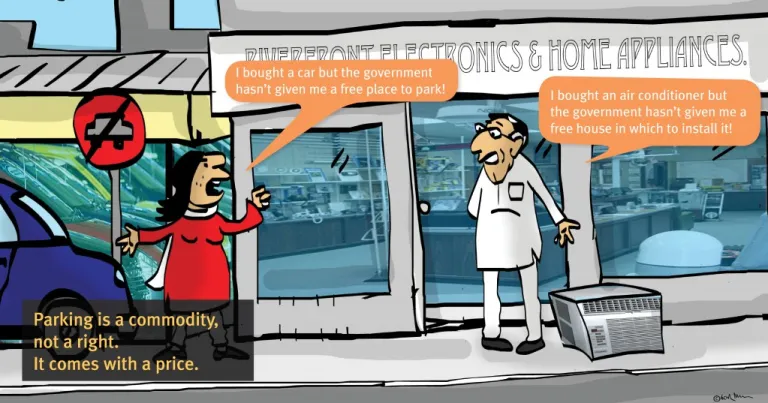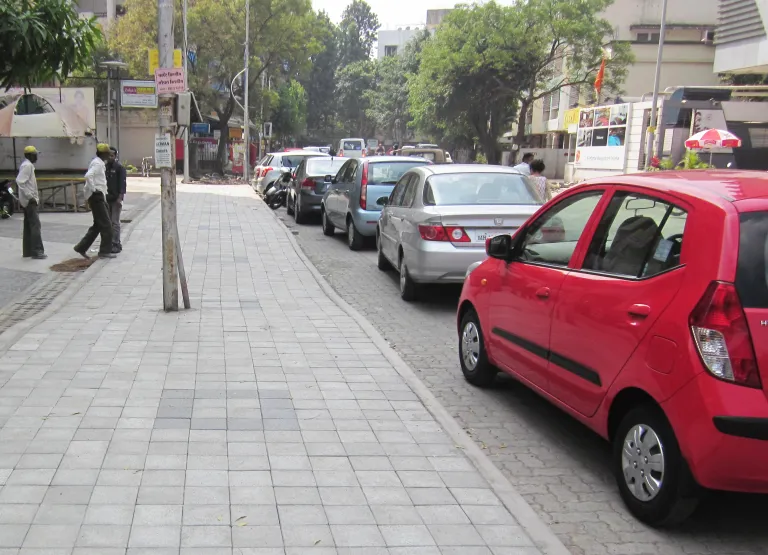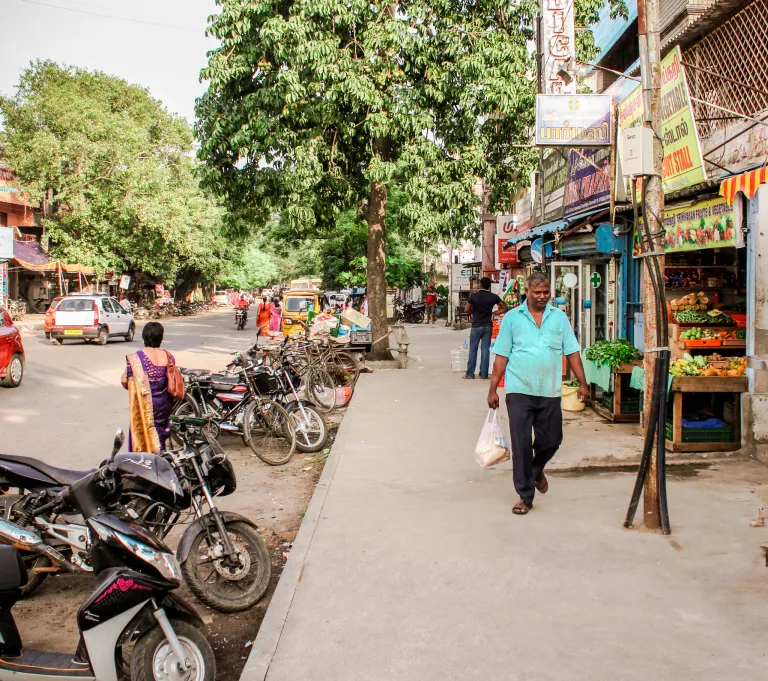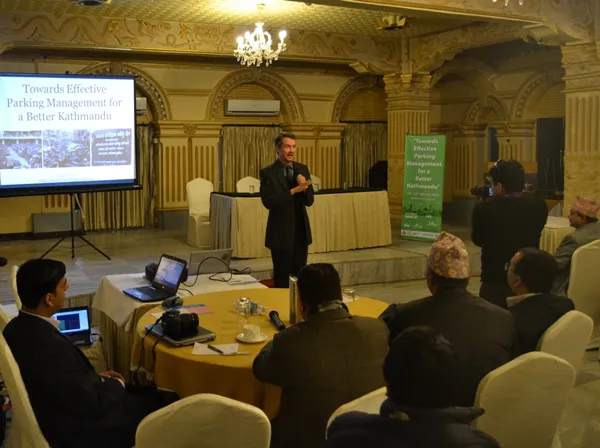“I bought an AC, now the government has to give me a free house to install it in!” If this is an absurd demand, so is free parking – “I bought a car, now the government has to give me a free place to park it!” Cities across the world including India, are gradually beginning to realise that parking is not a right; it is a commodity and should come at a price. In keeping with this revelation, Indian cities such as Ranchi have started implementing on-street parking management, with a parking fee.
writer unknown
Pune and Chennai are the latest cities striving to join the bandwagon. Pune will soon adopt a parking policy to guide parking management in the city. Pune and Chennai both aim to put a smart parking management system in place. There is now an urgent need to learn more about global best practices, especially challenges faced during implementation and solutions. In order to initiate this learning process, Pune and Chennai will host discussions and workshops internally and for the public in the following weeks, led by internationally acclaimed parking expert Dr.Paul Barter.

Today, unorganised on-street parking and invasion of pedestrian footpaths by parked cars is common of most Indian cities. On-street parking is mostly free, and even when charged, the rates are too low and fee collection is carried out by private operators with little monitoring or oversight by the government.
In Pune, open spaces have been converted into parking lots – including a mechanised structure – to meet the ‘demand’. However, prior to providing off-street solutions, on-street parking has to be addressed as it comes free of cost and is more easily accessible, hence is more sought after.
Realising this, Pune has tried to employ certain strategies to ensure that rampant parking doesn’t hinder movement of vehicles as well as people. The age-old “P1/P2” scheme has been incorporated in several streets where parking is allowed only on one side of the road depending on odd/even dates. Traffic cops have tried to ban parking on mobility corridors during peak hours.

Pune has also implemented a manually-operated “Pay and Park” system on some streets with parking charges of the order Rs 5-10 for four-wheelers for 2-4 hours. While this is the on-street scenario, many private establishments like hospitals and cinema halls charge upto Rs 50 for 4 hours of car-parking. All these measures have had mixed successes.
In Chennai on the other hand, parking rules and fees are administered on an ad-hoc basis, leading to a lack of clarity for users, inconsistent enforcement, and significant revenue leakage. The city experiences localised shortages despite overall availability of parking space.
The two cities are thus trying to solve the parking problem by better on-street parking management. The Pune Municipal Corporation has proposed a policy to manage parking in the city. The policy suggests slabs of parking charges, using the fundamental economic principle of supply and demand to determine the cost. It prioritises road space for other users – especially pedestrians, by dissuading the usage of any available public space (both off- and on-street) for parking.
A manually-operated “Pay and Park” system in Pune charges 4-wheelers Rs.5-10 for 2-4 hours

Chennai has initiated the process of implementing a smart parking management system. Key features of the proposed system are parking guidance for users and real-time information of parking slot availability on mobile platform, an online digital payment portal to improve revenue collection and enhance transparency and an electronic enforcement system, among other things.
For parking charges, a zone-based system will be followed wherein streets are categorised into paid parking (medium to high demand), free parking (low demand) and no parking (since parking restricts movement) zones. Parking fee and fine will be determined by the Greater Chennai Corporation and Chennai Smart City Ltd. It is estimated that the revenue from the system only from bus-route roads could itself be well over half a crore rupees per year.*
The revenue from parking management only on bus-route roads in Chennai could itself be over half a crore rupees per year.

In order to assist the two cities’ commendable efforts to deal with parking, Dr.Paul Barter will be visiting and leading discussions in both Pune and Chennai. Dr. Barter has offered his expertise along with necessary training in several parking-management projects across the world including Beijing, Kathmandu, Jakarta, Singapore, Mumbai, etc. He has published an on-street parking management toolkit as a guide for government staff in low-income and middle-income countries. His expert opinion and knowledge will add greatly to the parking management plan of the two cities.
Through their actions to tackle parking, Pune and Chennai are surely setting a great example for other cities that intend to create an urban environment focused on people rather than vehicles!
*This estimate is based on a parking fee rate of Rs. 40 per ECS per hour for bus-route roads.
Read the draft of Pune’s parking policy here: Suruvath: Public Parking Policy 2016.
Discover the basics of parking management and regulation in ITDP’s publication, Parking Basics.
Dr. Paul Barter at a parking management workshop in Kathmandu. Image Courtesy: Clean Energy Nepal
